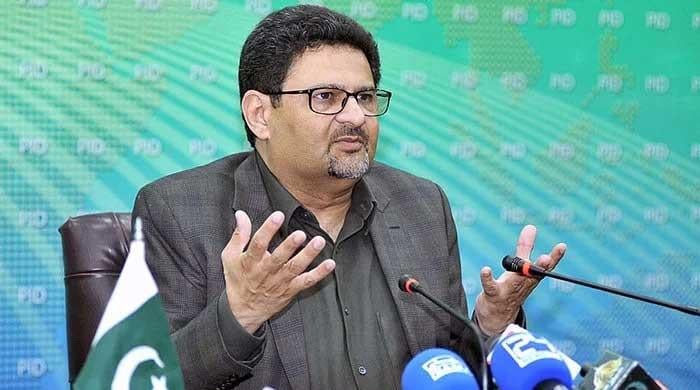Controversy Surrounds Benazir Nashonuma Programme Contract
ISLAMABAD: A controversy has intensified after Federal Minister for Parliamentary Affairs Dr. Tariq Fazal Chaudhry accused former finance minister Miftah Ismail of improperly awarding a Benazir Nashonuma Programme contract to his own company.
The government alleges a conflict of interest and abuse of power, which Miftah denies, asserting he lacked involvement in approving or increasing the program’s budget or in influencing the contract process. With conflicting claims, the situation has become serious, raising concerns about transparency, conflict of interest, and political gamesmanship.
Origins of the Allegation
To comprehend the origins of the allegation, understanding the Benazir Nashonuma Programme’s inception and Ismail Industries’ role is vital. The Benazir Income Support Programme (BISP) Board approved a strategy in December 2019 to combat child stunting and malnutrition through distributing Specialized Nutritious Food (SNF) in high-risk regions. Due to its technical capabilities, the United Nations World Food Programme (WFP) was selected as the implementing partner. The BISP Board received a briefing indicating an initial launch in select districts as a pilot, followed by a performance review by the WFP before nationwide scaling. Board minutes also confirm that the required nutrition SNF was already being manufactured within Pakistan.
Budget Allocations and Ismail Industries’ Role
Over subsequent years, the Nashonuma allocations experienced rapid growth, as demonstrated in budget records. The Benazir Nashonuma Programme saw allocations rise from Rs2.098 billion in 2020–21 to Rs4.87 billion in 2021–22. Further increases occurred, with Rs20.66 billion in 2022–23, Rs34.67 billion in 2023–24, and Rs42.10 billion in 2024–25. From 2022–23 to 2024–25, Ismail Industries Limited acted as the exclusive supplier of Specialized Nutritious Food (SNF) under the initiative, obtaining roughly Rs47 billion for procuring and delivering SNF.
Miftah Ismail’s Tenure and Conflicting Narratives
Following the ousting of Imran Khan’s administration in April 2022, Miftah Ismail took office as finance minister in the PDM-led government. He served approximately six months, from April to September 2022, before resigning. The contrasting perspectives are detailed below:
- Government’s Stance: Federal Minister Dr. Tariq Fazal Chaudhry stated to the Senate that Rs97 billion has been allocated to the Benazir Nashonuma Programme since 2022. He claimed Miftah Ismail augmented the program’s budget while in office as Finance Minister and gave the Specialized Nutritious Food (SNF) contract to Ismail Industries Limited, a company connected to him. Dr. Fazal questioned the propriety of a sitting minister approving a major contract for an affiliated firm, citing it as a conflict of interest.
- Government Spokesperson’s Explanation: A highly placed government spokesperson clarified that the finance ministry, not the implementing ministry, possesses ultimate authority in these matters. The spokesperson emphasized that ministries require finance ministry consent to increase their budgets, indicating that the finance minister holds the crucial decision-making power.
- Miftah Ismail’s Defense: Miftah Ismail refuted involvement in Nashonuma Programme budgetary decisions, asserting that the relevant ministries independently managed all procurements and allocations.
Miftah Ismail stated, “Everyone in Pakistan knows my family owns Ismail Industries Ltd, and, of course, the PM and my cabinet colleagues knew about it. The budget of the Nashonuma programme was set by the BISP and Poverty Alleviation ministry and not by the finance ministry. I didn’t even know till today what the numbers were.”
“The budget for Nashonuma kept increasing in subsequent years, even after I left in 5 months at the ministry. And the reason for this is probably insistence by World Bank and IMF and also BISP priorities of reducing stunting. The BISP business in the year I was FM was less than 10 percent of our company’s business. You can ask people if I have ever even spoken to anyone at BISP, Poverty Alleviation, Finance, WFP about this programme or my business generally,” he commented.
“I wasn’t making any decisions about the programme hence, there was no conflict of interest. And who was I supposed to submit this ‘disclosure certificate’ to? As everyone already knows, my family owns Ismail Industries,” Miftah commented.
“Just for context, with information taken from the BISP website, the total BISP budget went from Rs236 billion to Rs412 billion from 2021-22 to 2022-23. And it has kept increasing at a fast pace since then. The budget for Waseela-e-Taleem went from Rs8 billion to Rs20 billion in that period and the budget for Nashonuma went from Rs5 billion (and not Rs2 billion as you say) to Rs20 billion. So, the BISP Board was increasing the amount of several programmes. Pakistan has been increasing the total BISP programme in recent years quite rapidly, also partially because of the IMF and World Bank,” Miftah explained while responding to questions.
Regarding the duration of supplying food supplements to UN Agencies, Miftah responded, “We have been engaged in this business for two decades and started this business at the invitation of WFP — which wanted to develop this capacity in developing countries. We are now the largest producer of SNF in the world, bigger now than the French company Nutraset. Ours in an international success story where a Pakistani company has become bigger than many European and American companies. “We are also suppliers to MSF (Medicine Sans Frontiers), ICRC (International Committee of the Red Cross), Action Against Hunger, Aga Khan Development Network, World Health Organisation, Bill and Melinda Gates Foundation, and many more NGOs. We supply SNF to WFP headquarters in Rome, WFP Pakistan, UNICEF Central Supply Division in Copenhagen, and UNICEF Pakistan. Through them we supply to Afghanistan, Bangladesh, Myanmar, Sudan, Yemen, Lebanon, Malawi, Chad, Syria, Kenya, etc,” he informed.
As the government insists on a conflict of interest and budgetary influence, and Miftah Ismail denies involvement in allocation processes or procurement decisions, the controversy continues. Both sides have presented their arguments, official documents, and explanations. Considering the significant public funds and political ramifications, this issue will likely remain prominent in the near future.



Comments (0)
No comments yet. Be the first to comment!
Leave a Comment